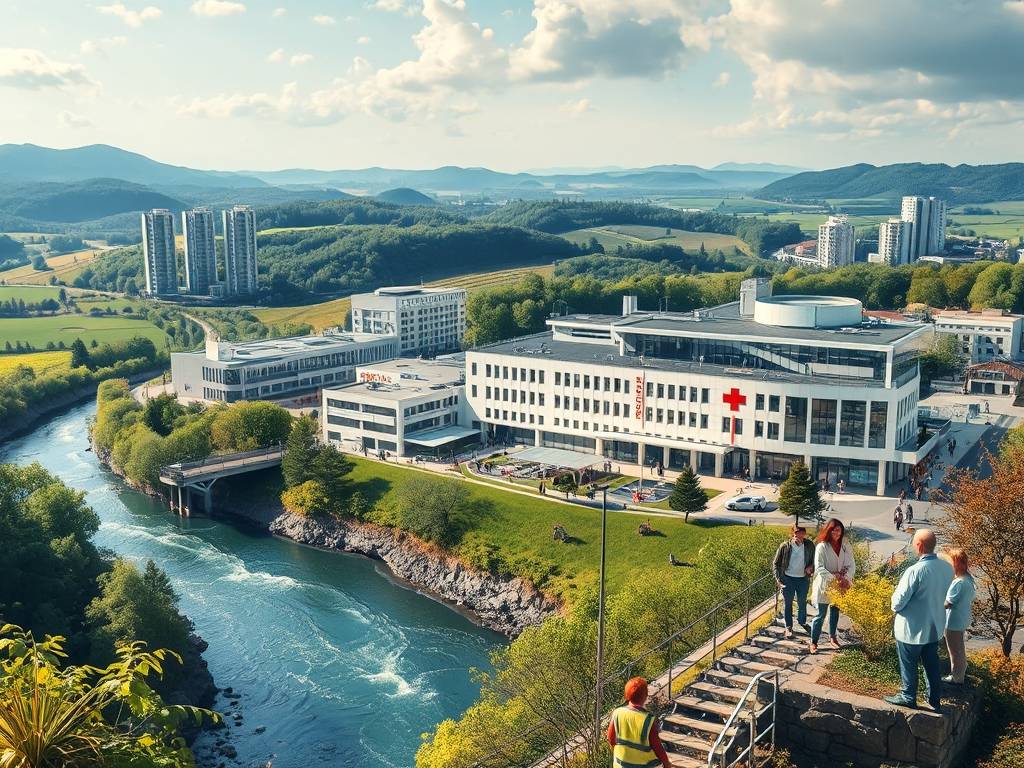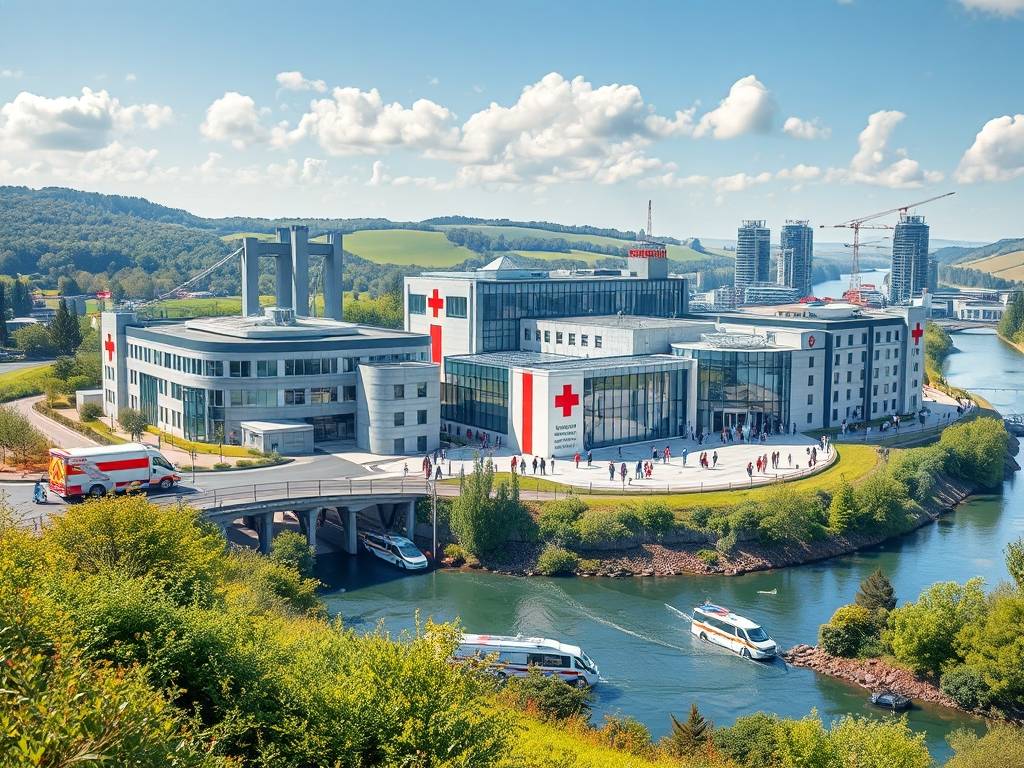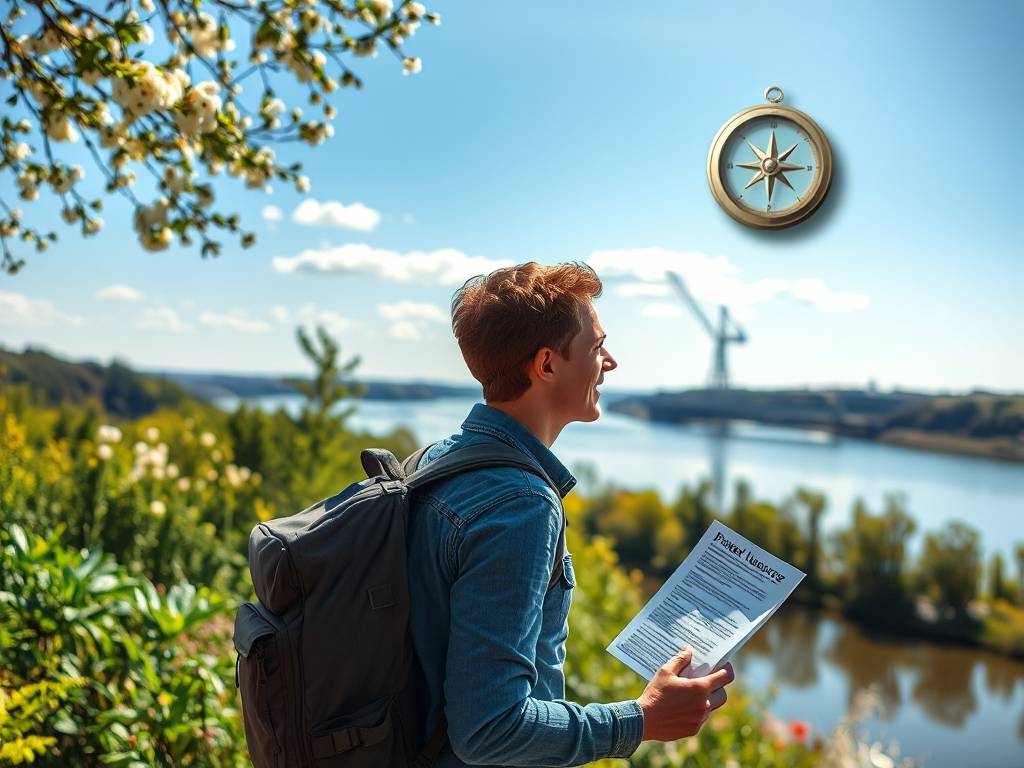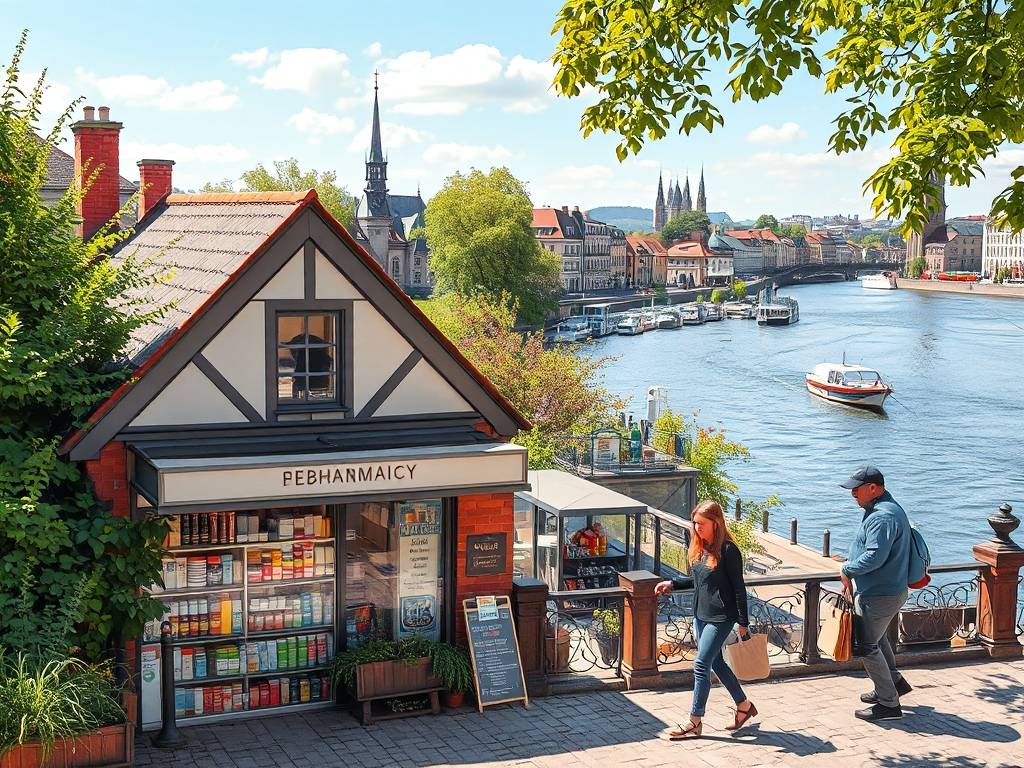Global Travel Information
Elbe River Hospitals: Medical Care in Case of Emergency
Navigating Healthcare on the Elbe: Your Guide to Emergency Medical Services
The Elbe River, winding its way through the heart of Europe, is more than just a scenic waterway for cruise ships and riverside picnics. For the communities along its banks and the thousands of travelers who explore its beauty each year, it's a living, working artery. And just like any major thoroughfare, the question of healthcare, especially in an emergency, is paramount. What happens if you or a loved one needs urgent medical attention while near the Elbe? The good news is that the regions surrounding the river are served by a robust network of medical facilities, often collectively thought of as the "Elbe River hospitals" system. This guide is designed to demystify the process of accessing medical care in case of an emergency, ensuring you feel informed and prepared.

Understanding the Landscape of Care

The first thing to know is that there isn't a single, monolithic "Elbe River hospital." Instead, the term refers to the collective of hospitals and clinics in major cities and towns along the river's course, primarily in Germany and the Czech Republic. These facilities range from small local clinics (Krankenhaus in German, nemocnice in Czech) handling minor ailments to large, university-based tertiary care centers equipped with state-of-the-art technology and specialized trauma units.
In Germany, cities like Dresden, Magdeburg, and Hamburg host some of the most renowned medical institutions. For instance, University Hospital Carl Gustav Carus in Dresden is a leading academic medical center with a comprehensive emergency department. Similarly, University Medical Center Hamburg-Eppendorf (UKE) is a major hub for specialized care. In the Czech Republic, cities such as Ústí nad Labem, Děčín, and of course, Prague, which lies close to the river, offer high-quality healthcare services. The key is not to memorize every hospital name, but to understand the system that connects them.
Your First Step in Any Medical Emergency: The European Emergency Number
Regardless of where you are on the Elbe River, the single most important number to remember is 112. This is the pan-European emergency number, free to call from any phone, including mobiles without a SIM card. Dialing 112 connects you to a central dispatch center where you can request an ambulance (Rettungswagen in Germany, záchranka in the Czech Republic), the fire department, or the police.
When you call, try to stay calm and provide clear information:
- State your location: Be as precise as possible. Note landmarks, river kilometers if you're on a boat, or the name of the nearest town.
- Describe the emergency: Explain what has happened (e.g., "chest pain," "a fall," "difficulty breathing").
- Number of people involved: Let them know how many people need help.
- Do not hang up: Let the operator guide you and confirm they have all the information they need.
This system is the gateway to the entire emergency medical services (EMS) network. The dispatcher will alert the nearest available ambulance and, if necessary, coordinate with the most appropriate hospital based on the nature of the emergency.
What to Expect from Emergency Medical Services and Hospital Admission
The EMS response along the Elbe is highly professional and efficient. Paramedics are trained to provide advanced life support at the scene and during transport. Their primary goal is to stabilize you and transport you to the nearest facility capable of handling your specific condition. For critical trauma, this might mean bypassing a smaller local hospital and going directly to a designated Traumazentrum (Trauma Center) in a larger city like Dresden or Hamburg.
Upon arrival at the emergency room (Notaufnahme in German, příjmová ambulance in Czech), you will be assessed through a process called triage. A nurse or doctor will quickly evaluate the severity of your condition. Patients with life-threatening issues are seen first. While wait times can vary for less urgent cases, the triage system ensures that the most critical patients receive immediate attention.
For tourists and non-residents, a common concern is language. In the major hospitals in cities frequented by international visitors, you will often find English-speaking medical staff, especially doctors. In more rural areas, it might be more challenging, but medical professionals are adept at using translation services or finding creative ways to communicate. It's always a good idea to have a phrasebook or a translation app on your phone for basic communication.
Navigating Health Insurance and Costs
This is a crucial aspect of "medical care in case of emergency" that requires forethought.
- EU/EEA Citizens: If you are a citizen of an EU/EEA country or Switzerland, you must carry your European Health Insurance Card (EHIC) or its new UK equivalent, the GHIC (Global Health Insurance Card). This card entitles you to necessary state-provided healthcare during a temporary stay on the same terms as residents of the country you are in. It may not cover all costs, and you might have to pay a co-payment, so comprehensive travel insurance is still highly recommended.
- Non-EU Citizens (e.g., from the US, Canada, Australia): You will be required to pay for medical services. Costs can be significant, especially for a hospital stay or surgery. It is absolutely essential to have comprehensive travel health insurance that covers emergency medical treatment, hospitalization, and medical evacuation. Upon discharge, you will receive an invoice that you can submit to your insurance company for reimbursement. Always check your policy details before you travel.
Special Considerations for River Cruise Passengers and Boaters
If you are on an Elbe River cruise, your first point of contact in any medical situation should be the ship's crew. Cruise ships, even river vessels, have a medical bay with a doctor or nurse on call for minor issues. They are trained to handle emergencies and will coordinate with onshore emergency services, arrange for transport to a hospital, and assist with communication. They can also liaise with your travel insurance company. The advantage of being on an organized cruise is that you have a built-in support system to help you navigate the local healthcare landscape.
For private boaters, the situation is more independent. Ensure your boat has a well-stocked first-aid kit and that you know your exact location on the river. In an emergency, dial 112 immediately and be prepared to describe your location using river markers or GPS coordinates.
Beyond the Emergency: Follow-up Care and Pharmacy Services
Once the immediate emergency is over, you may need follow-up care or prescription medication. In both Germany and the Czech Republic, you will find pharmacies (Apotheke in German, lékárna in Czech) in every town. They are the only places where you can fill prescriptions. For minor health issues, the pharmacist is an excellent first resource and can provide advice and over-the-counter medications without a prescription.
If you need to see a specialist for a non-emergency follow-up, you will typically need a referral from a general practitioner. This can be more complex for short-term visitors, so it's vital to communicate with your insurance provider, who may have a network of preferred providers or can guide you on the next steps.
In conclusion, while the thought of a medical emergency abroad can be daunting, the healthcare infrastructure along the Elbe River is well-equipped to provide excellent care. By memorizing the number 112, understanding your insurance coverage, and knowing the basic steps of the process, you can navigate this system with confidence. The "Elbe River hospitals" network, supported by professional emergency medical services, ensures that whether you're a resident enjoying a bike ride or a tourist marveling at the scenery, you are never far from the help you need. So, explore the beautiful Elbe with peace of mind, knowing that a system of care is flowing steadily alongside you.
相关文章
- Elbe River Stroller-Friendly Paths: Easy Walks with Kids
- Elbe River Accessible Restrooms: Facilities for All Travelers
- Elbe River First Aid Stations: Where to Get Help
- Elbe River Pharmacies: Find Medication Near the River
- Elbe River Travel Insurance: Protect Your Trip
- Elbe River Visa Information: Requirements for International Travelers
- Elbe River Passport Tips: Keep Your Documents Safe
- Elbe River Customs Rules: What to Declare When Entering Germany
- Elbe River Language Apps: Translate on the Go
- Elbe River Wi-Fi Spots: Stay Connected Along the River
发表评论
评论列表
- 这篇文章还没有收到评论,赶紧来抢沙发吧~


